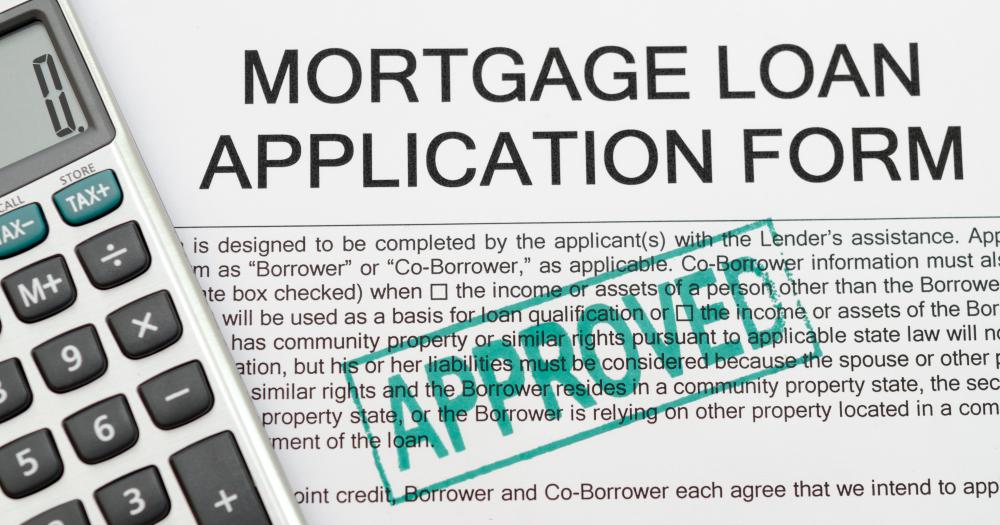At WiseGEEK, we're committed to delivering accurate, trustworthy information. Our expert-authored content is rigorously fact-checked and sourced from credible authorities. Discover how we uphold the highest standards in providing you with reliable knowledge.
What are First Mortgage Loans?
First mortgage loans are any loans secured by residential or commercial property that occupy the first lien position on the property being financed. Laws in many places enable borrowers to secure two or three loans with the same piece of property, but the first lien holder has the senior claim on the property in the event of borrower default. Borrowers can use mortgages to buy or to refinance property. Mortgage lenders offer much lower interest rates on first mortgage loans than loans that occupy the second or third lien position.
When a lender writes a loan secured by property, the lender can assume control of that property if the borrower defaults on the loan. Lenders sell property seized from delinquent borrowers and use the proceeds to settle the debt. Due to the danger of a piece of property losing value over time, most lenders do not allow borrowers to establish first mortgage loans that are equal to 100 percent of the property value. Borrowers buying property must cover the remainder of the purchase price with separate funds or take out a simultaneous second mortgage to cover the rest of the purchase price.

Property owners can payoff existing first mortgage loans as well as other debts secured by a particular property by taking out a refinance loan. In order for the new mortgage to occupy the first lien position, all other liens must be paid off with proceeds from the refinance loan. Any remaining lien on the home that pre-dates the refinance mortgage will occupy the first lien after the refinance occurs. Borrowers with existing second liens can only leave those loans in place and establish a new first lien mortgage if the current second lien holder signs a subordination agreement. A subordination agreement allows a newly written loan to move into first lien position on a property ahead of already existing liens.

Lenders enable borrowers to take out both fixed rate and variable rate first mortgages. Term times on fixed rate loans typically range from 10 to 30 years. Variable rate loans either have rates that adjust throughout the entire term of the loan or begin with an introductory period, during which the borrower pays an interest only variable rate and a second phase in which the borrower makes both principal and interest payments. Lenders usually do not allow borrowers to establish second liens behind variable rate first liens because of the potential for rising interest rates to deplete the property owners’ equity over the course of time.
AS FEATURED ON:
AS FEATURED ON:












Discussion Comments
@Icecream17 -That is probably because the bank wants to factor in the interest rate gains up front with a fixed rate loan, because they know with the variable loan that the interest rates will eventually go up and they will make their money that way.
I found that when you want to buy a property in a short sale situation that has multiple mortgages it makes it even harder to get the short sale approved.
I was looking at a short sale property that had an 80% mortgage in the first position and a 20% mortgage in the second position. It was really hard to get this short sale approved because the bank holding the first mortgage will get paid, but the bank holding the second mortgage might not get paid or will have to settle for a lot less.
This is why they usually drag their feet when there is more than one bank involved.
@Bhutan - I wanted to add that I took out a home equity line of credit which offered a variable rate and I was able to get a rate of 3.49%.
The home equity loan, however offered a fixed rate option but the rate that I was quoted was 7.5% interest. I also had to start paying the loan immediately where as with the credit line, it was a revolving form of credit that I paid on when I started using it. I could not believe the difference in these mortgage loan rates.
I know that a lot of first time buyers qualify for FHA mortgage loans. These loans usually only require a 3% down payment which makes it easier for these first time borrowers to come up with the down payment.
Another good thing about these FHA loans is that they also accept borrowers with less than perfect credit and the loans are backed by the federal government. The interest rates might be a little higher than a regular mortgage loan, but it does have advantages.
There are also some government grants for first time mortgage loans which are worth checking out. I think that looking at a lot of financial sites that offer you a mortgage loan calculator it can give you an idea of how much your payments will be and how long it will take you to pay off your mortgage.
Post your comments